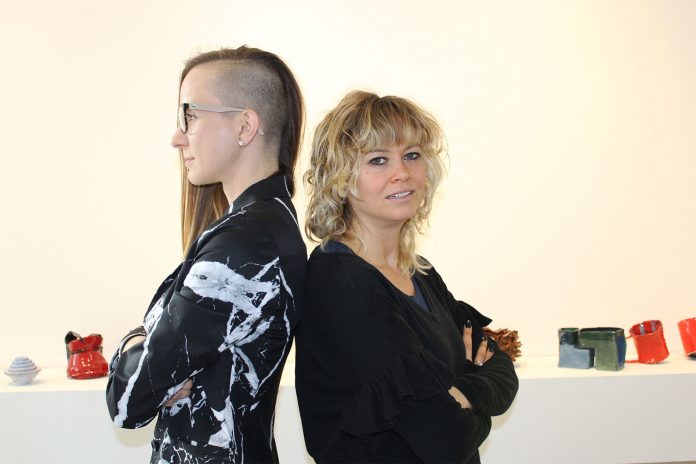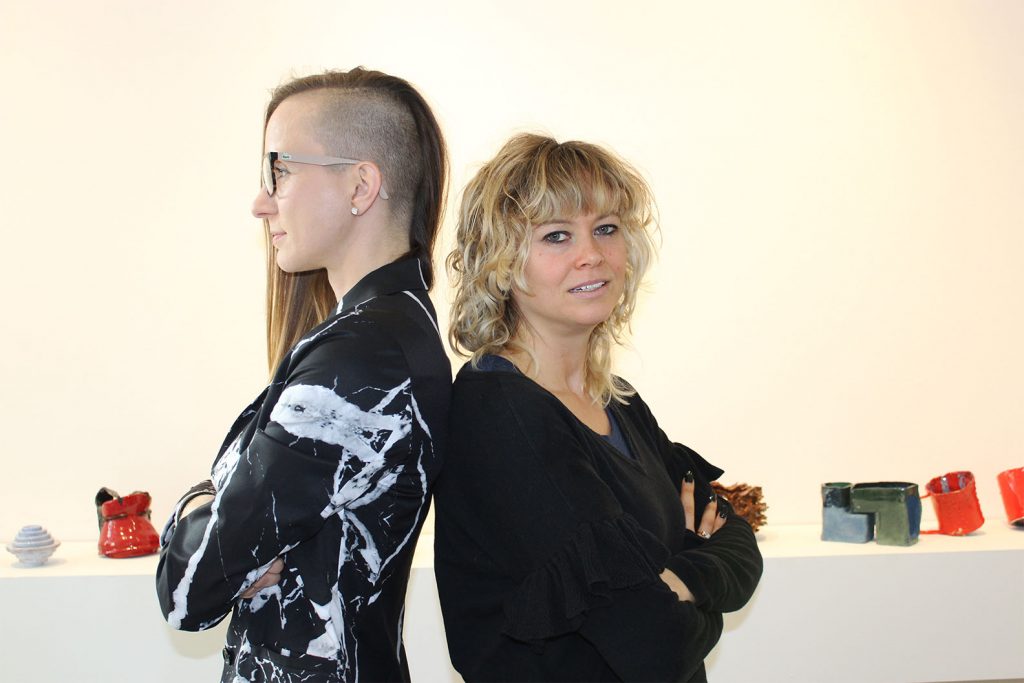

Professor Lindsay Garcia and Professor Helis Sikk are spending the 2018-2019 academic year at DePauw University as Sikk completes her one-year postdoctoral fellowship teaching in the Women’s, Gender and Sexuality department. Due to her wife’s position, Garcia also found a job for the year, teaching as an assistant professor in the art department while working on her PhD in American Studies from William and Mary.
Professor Garcia :
“I am passionate first and foremost about social and environmental justice, and that manifests itself through both art and academic scholarly interventions. So I am a practicing artist first and foremost, and I am currently posing as an academic because I am also in the process of getting a PhD in American Studies at William and Mary. I made that choice as an artist because I wanted to ensure that I am doing both responsible art-making as well as teaching art responsibly. In terms of trying to use the power of art to create equity in the world between various different groups of humans, nonhumans, and environments, because of course, the histories of subjugations, and marginalization and structural violence make the world a terrible place, so we want to make it better: let’s use art and scholarly intervention. And there is sort of a diaspora when you teach because the students take it to their friends and their families, into their communities, and to future employment. You need someone in the room who knows how to talk a feminist game and can push back against those white dudes trying to control bodies. So there is a diaspora of knowledge that takes place when you can be in a classroom teaching about women, gender, and sexuality studies and social justice.”
Professor Sikk:
“It sounds idealistic, but I do believe that teaching is one of the best ways to do activism and social justice activism. To educate people above all is about their own rights as well to give them the vocabulary to articulate injustices and then be able to also have the confidence to stand up for that. This is something that I am definitely passionate about, in teaching, but we do try to engage in different kinds of social justice outside of the campus as well. At Wooster, we kind of got involved with a food justice group and then some of the LGBTQ groups as well. I mean if you are only in a place for a year, it is difficult to get involved responsibly. Teaching is definitely one of the more responsible and more sustainable ways to do activism. I guess that it is a more holistic approach to do social justice as well. It is not just going out with posters and protesting, which is very important and we do that too. But it [teaching] looks at injustice just in terms of bodies, in terms of food, and in terms of access to how livable places are and where can you go without a car as well. I love reading and talking about ideas, and it is just amazing that you can do that in classrooms.”
